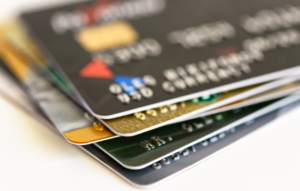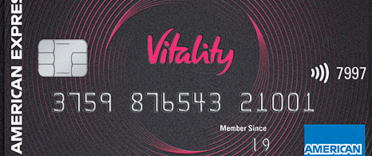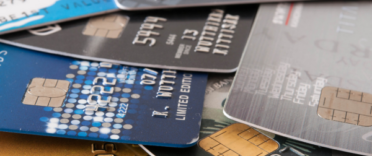
In this article we provide a handy breakdown of the main providers for each type of credit card, show you how to check if you are likely to be accepted and provide you with the Trustpilot ranking for each one to give you an indication of the customer service you can expect.
Which type of credit card do I need?
The type of card you choose will be determined by the way you intend to use it and any particular features you require. The main categories of cards are:
- Balance transfer credit cards: for those with an existing debt which they want to move to a card with a lower interest rate
- Purchase credit cards: for those looking to make a large purchase, such as a holiday
- Money transfer credit cards: for those who need to transfer money to their bank account
- Credit-builder credit cards: for those with little or poor credit history
- Cashback/reward credit cards: for those looking to earn rewards or perks through their spending
- All-round credit cards: for those looking to combine the benefits of a number of features in one multipurpose card
You can find out more by reading our article 'Which credit card is best for me?'.
Which are the best balance transfer credit cards?
A balance transfer credit card may be a good option if you have an existing balance on another card that you are paying a high rate of interest on. They offer an introductory interest-free period that allows you breathing space and the opportunity to pay off as much of the debt as possible. The best deals provide as much as 29 months interest free, although you typically have a set period of time - say, 60 days - from opening the account to transfer the balance.
It is worth noting whether you have to pay a balance transfer fee to move your money across, as well as if there is an annual fee to have the account. You also need to be aware of the APR when you come out of the introductory period.
For our best-buys for balance transfer cards read 'Best 0% balance transfer credit card deals'.
Which are the best credit cards for poor credit?
You may need to consider a credit card designed for people with poor credit if you have a history of missed payments on other financial commitments, have a CCJ against you, an IVA or have been declared bankrupt. They are also suitable for people who haven't previously taken out any form of borrowing and, as a result, have no track record of being able to manage a debt responsibly.
Many of these cards are marketed as being 'credit-builder' credit cards, which can serve to improve your credit rating over time. In fact, managing any credit card sensibly will serve the same purpose, however, you are more likely to be accepted for one of these cards and are often also provided with extra support to manage your account, perhaps through reminder emails and text messages when payments are due. The catch is that the APR is typically far higher than for a standard or premium credit card and the maximum credit limit is often relatively low.
For our best-buys for bad credit credit cards, read our article 'Compare credit cards for bad credit'.
Which are the best credit cards for 0% offers on purchases?
Opting for a card with an offer of an interest-free period for purchases gives you the opportunity to spread the cost over a longer period, without ending up having to pay extra on the interest that accrues. It is worth bearing in mind that all cards tend to offer up to 56 days interest-free on purchases if you pay the balance off in full each month. However, these cards are ideal for bigger purchases, for which you couldn't afford to clear the balance over that time frame.
For our best-buys for 0% purchase credit cards, see our article 'Compare the best 0% purchase credit cards'.
Which are the best money-transfer credit cards?
Money-transfer credit cards enable people to, in effect, borrow money from the credit card and have it paid into their bank account. This money can then be used to pay other debts or for transactions that need to be done in cash or by debit card. Many cards offer an interest-free period for the money transfer, which helps make it more cost-effective.
For our best-buys, check out our article 'A complete guide to the best money transfer credit cards'.
Which are the best credit cards for cashback/rewards?
As well as looking for a credit card that offers a specific function, many people make their choice based on the perks the card offers. This could include more generalised cashback offers on spending or those tailored to appeal to regular shoppers at a specific shop or supermarket. There are also reward schemes that offer access to tickets to live events or, at the upper end, the potential to earn free flights or hotel stays.
For our best-buys for cashback and rewards credit cards, read our article 'Compare the best cashback and reward credit cards'.
Which are the best all-round credit cards?
All-round credit cards are multipurpose cards that combine a number of features. Typically they have interest-free offers on balance transfers and purchases, as well as additional benefits, such as cashback or rewards. They're useful as it means you don't have to have a variety of cards offering different things and many of them have attractive introductory offers. On the flip-side, it is often possible to get a better deal on cards that focus on one specific element, so it is worth considering if you are going to take advantage of all of the perks of the all-round offering.
For our best-buys for all-round credit cards, read our article 'Best credit cards in the UK'.
Which credit card is best for you?
Money to the Masses has partnered with Creditec* to help find the best credit card for you. By entering a few basic details, you will be able to see a tailored list of the best credit cards based on your individual circumstances. You can sort your results by the feature that interests you most, such as by card type, total fees or cashback offered. On top of this, the credit cards that have been pre-approved for you will be highlighted, meaning you can be more confident that you will be accepted if you apply. (Pre-approval does not guarantee acceptance and is still subject to additional lender checks). Your details will be used to conduct a soft credit search often referred to as an eligibility check, which means your credit score will not be affected. Click on this link to get started*.
How can I choose the best credit card?
In terms of choosing the best card from within a specific category, it's worth checking out our article 'Best credit cards in the UK'. Generally, you should judge a card based on:
- The interest rate: What is the APR on the card? How does it compare to similar cards? Are you likely to be able to keep up with repayments on the card with the interest rate at that level if you can't afford to pay off the balance in full each month?
- Introductory offers: The card may offer an interest-free period or other benefits for a set time from the point you open the account. Check the small print to see if there are any caveats to that deal being applied to your account. For example, some cards have, say, two-years' interest free on balance transfers but you have to move the money over within the first 60 days of opening the account.
- Fees: Take into consideration any annual or monthly fees, as well as any additional charges you may incur for things like balance and money transfers or cash transactions
- Perks: Some cards allow you to earn cashback or vouchers, while others give you access to exclusive tickets to live events or discounts at major retailers
Am I likely to be accepted for a credit card?
Once you have identified the card you want, the next step is working out if you are likely to be accepted for it. Different credit cards have different eligibility criteria attached to them, with most focusing on your credit rating and your history of managing debt in the past. Most providers will also require that you have a permanent UK-based address, have a minimum level of annual income and are over the age of 18. If you are unsure whether you will qualify for a credit card or if it is the right option for you, read our article 'Should I get a credit card?'.
Before you start looking for a credit card, it's a good idea to check your credit score for free through a service such as Experian, Equifax or TransUnion. This will give you an idea of whether you will be accepted for premium cards or if you need to consider credit-builder options instead. For advice on how to improve your credit score, read our article 'How to improve your credit score quickly'.
What is an eligibility checker?
As the name suggests, an eligibility checker is an online tool provided by many credit card providers to show you if you are likely to be accepted for a specific card. They typically involve the applicant inputting basic personal details and their address, which enables the credit card company to run a pre-application check on their credit file. The result usually only takes a few minutes to come through.
The benefit of using an eligibility checker rather than simply completing the full application is it won't leave a mark on your credit file if you are not successful. This is worth bearing in mind as multiple unsuccessful applications can have a significant detrimental effect on your credit rating which, in turn, will make it even harder to secure credit in the future.
If a card does not have an eligibility checker, it is vitally important to read the criteria on the product page very carefully before completing the application. Be realistic about your chances of being accepted with your current credit score and make sure you have all of the information you need to complete the form accurately to hand.
If a link has an * beside it this means that it is an affiliated link. If you go via the link Money to the Masses may receive a small fee which helps keep Money to the Masses free to use. But as you can clearly see this has in no way influenced this independent and balanced review of the product.







